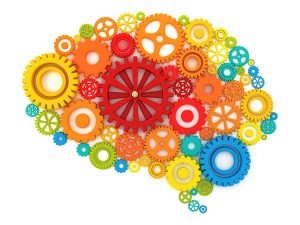
Knowing how a stroke affects the brain will empower you to know how to best help someone you love.
It often starts suddenly. A strange sensation. A trip to the ER. When someone experiences a stroke, life can shift in an instant—for them and for everyone who loves them.
Maybe you’ve recently stood by the hospital bed of someone close to you, overwhelmed with questions. Will they walk again? Will they speak the same? Will their personality change? These are real, emotional concerns, and while no two stroke survivors are alike, understanding how a stroke affects the brain is one of the first steps in helping a loved one recover and regain as much independence as possible.
How Does a Stroke Affect the Brain?
A stroke interrupts the flow of oxygen-rich blood to the brain. When brain cells are deprived of oxygen, they begin to die—fast. Which part of the brain is affected determines how the person is impacted physically, mentally, and emotionally. Here’s a closer look:
If the Right Side of the Brain Is Affected
The right hemisphere of the brain controls the left side of the body and is responsible for spatial awareness, visual processing, and some aspects of memory and emotion. A stroke in this area may lead to:
- Difficulty judging distances – Navigating stairs or even walking across a room can become risky.
- Impaired behavior and judgment – Some stroke survivors might try to do things they’re not yet ready for, like cooking alone or driving.
- Short-term memory loss – They may forget recent conversations or tasks and need reminders throughout the day.
If the Left Side of the Brain Is Affected
The left hemisphere controls the right side of the body and plays a big role in speech, language, and logic. A stroke in this area might cause:
- Speech and language challenges – The person might have trouble finding words, forming sentences, or understanding what’s being said.
- Cautious or slower behavior – They may become more hesitant and rely on routine to feel secure.
- Subtle memory problems – Forgetfulness may go unnoticed at first but can cause frustration for both the survivor and their loved ones.
What About Strokes in Other Areas of the Brain?
Strokes that occur in the brain stem or cerebellum—less common, but still serious—can affect breathing, heartbeat, coordination, or even lead to locked-in syndrome, where a person is conscious but unable to move or speak. These cases often require more complex care and adjustments to daily life.
Helping Someone Thrive After a Stroke
Supporting someone post-stroke involves patience, planning, and sometimes a new approach to daily routines. Understanding why your family member behaves differently can relieve frustration and open the door to empathy. They may not be able to do things the same way they used to—but with the right support, many stroke survivors find new ways to live full, meaningful lives.
Home modifications may be necessary to make movement easier and prevent falls. Consistent routines, gentle reminders, and compassionate assistance can go a long way in helping someone feel safe and supported.
At Advanced Home Health Care, we understand the emotional and practical challenges of stroke recovery. We serve residents of Burlington, Fort Madison, Keokuk, and throughout Southeast Iowa with customized in-home support for people rebuilding life after a stroke. Whether it’s helping with daily tasks, keeping track of medications, or simply being there to offer a reassuring presence, our goal is to make life easier—for both the person recovering and the family walking this journey alongside them.
Call us at 800.791.7785 to schedule a free in-home consultation and learn how we can help. We’re here to walk with you every step of the way.

